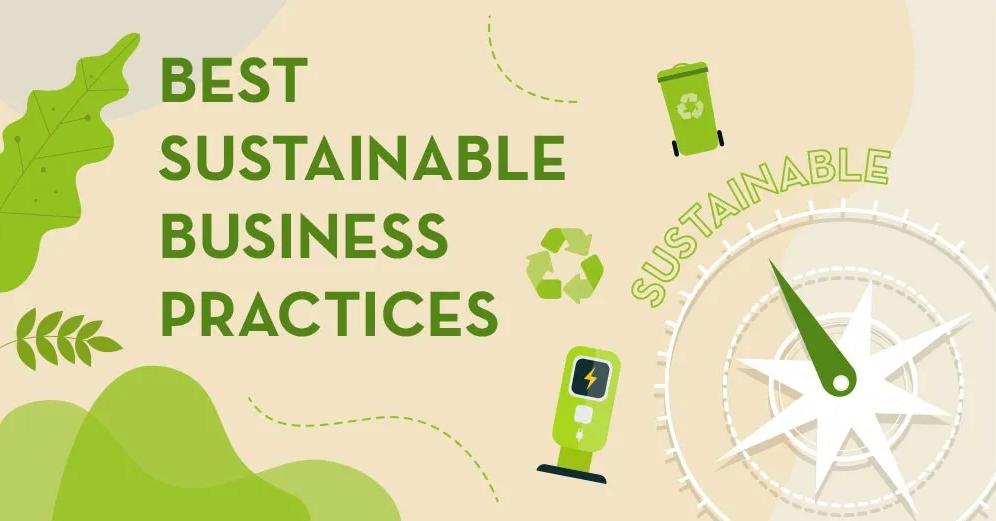In today’s world, the need for sustainability isn’t just a buzzword—it’s a crucial aspect of running a successful business. As consumers become more eco-conscious, companies realize that embracing sustainability isn’t just a moral responsibility and a smart business move. To make your business more sustainable and inspire your employees to join the green revolution, we’ll explore various strategies, from creating a culture of sustainability to implementing eco-friendly practices.
The Power of Sustainability
Before diving into specific strategies, let’s first understand why sustainability matters. Sustainable business practices aren’t just about saving the environment; they can also boost your bottom line. Customers increasingly prefer environmentally responsible companies, and investors seek opportunities in green ventures. Thus, embracing sustainability is a win-win situation for your business and the planet.
Fostering a Culture of Sustainability
One of the keys to making your business more sustainable is to instill a culture of responsibility within your organization. Start by educating your employees about the importance of resource conservation. Encourage them to save water, not just at home but also at work. Simple steps like fixing leaks, using low-flow faucets, and practicing responsible water usage can greatly reduce your business’s environmental impact.
Sustainable Procurement
Sustainability doesn’t end with your company’s operations but extends to your supply chain. Opt for suppliers who share your commitment to eco-friendliness. Look for products with minimal packaging and prioritize locally sourced materials to reduce transportation emissions. By making conscious choices in your supply chain, you contribute to a more sustainable future.
The Vital Role of Paper Recycling
Now, let’s talk about an often overlooked aspect of sustainability: paper recycling. While digitalization is on the rise, offices still generate significant paper waste. Implement a paper recycling program in your workplace to ensure that every sheet of paper gets a second chance. Encourage employees to use both sides of the paper, and provide clearly labeled recycling bins to make recycling effortless. The positive impact of paper recycling on your carbon footprint cannot be overstated.
Employee Engagement and Education
Empowering your employees to make sustainable choices is pivotal. Organize workshops or training sessions to educate them about sustainability practices. Highlight the benefits of carpooling, using public transport, or working from home to reduce commuting emissions. When employees understand the importance of their actions, they become enthusiastic participants in your sustainability journey.
Energy Efficiency with LED Lighting
Energy consumption is a significant contributor to environmental damage. To reduce your carbon footprint, consider transitioning to LED lighting. LED lights are energy-efficient, lasting longer, and consume less electricity than traditional incandescent bulbs. This switch saves you money in the long run and reduces your business’s impact on the planet. You’re taking a tangible step towards a greener future by embracing LED lighting.
Measuring and Celebrating Progress
You need to track your progress to sustain your commitment to environmental responsibility. Set specific sustainability goals, like reducing water usage or paper waste, and regularly evaluate your achievements. Celebrate milestones and recognize the efforts of employees who contribute to your sustainability efforts. This keeps everyone motivated and showcases your dedication to making a difference.
Collaborate for a Sustainable Future
Sustainability isn’t a journey a business should embark on alone; it’s a collective effort. Consider collaborating with other companies, organizations, and local communities to amplify your impact. When like-minded organizations come together, they can exchange ideas, share resources, and tackle more extensive eco-initiatives. This might involve organizing community clean-up events or supporting environmental conservation projects. Engaging in industry initiatives is another way to make a difference. Many industries have sustainability-focused associations or groups where businesses can join, stay updated on the latest sustainable practices, and collaborate with peers. By sharing best practices within your industry, you can accelerate the adoption of eco-friendly solutions. Supporting local sustainability initiatives can also strengthen your commitment to the cause. Consider contributing to local sustainability events or projects. Whether sponsoring a community garden, participating in tree-planting campaigns, or supporting green education programs in schools, your involvement can make a meaningful environmental impact.
Moreover, encourage your employees to participate in volunteer activities related to sustainability. Offering paid time off for volunteering or organizing group volunteering activities reinforces your commitment to sustainability and fosters a sense of purpose among your team. By collaborating with others, you extend your reach and influence, creating a ripple effect of positive change that goes beyond your immediate business operations. Together, we can make sustainability a business strategy and a global movement for a better, greener future.
Making your business more sustainable is not just an option; it’s necessary for success today. By fostering a culture of sustainability, promoting eco-friendly procurement, championing paper recycling, educating and empowering your employees, and adopting energy-efficient technologies like LED lighting, you’re reducing your ecological footprint and positioning your business for long-term prosperity. So, take these steps today, and together, let’s build a greener, brighter future for our businesses and the planet.






